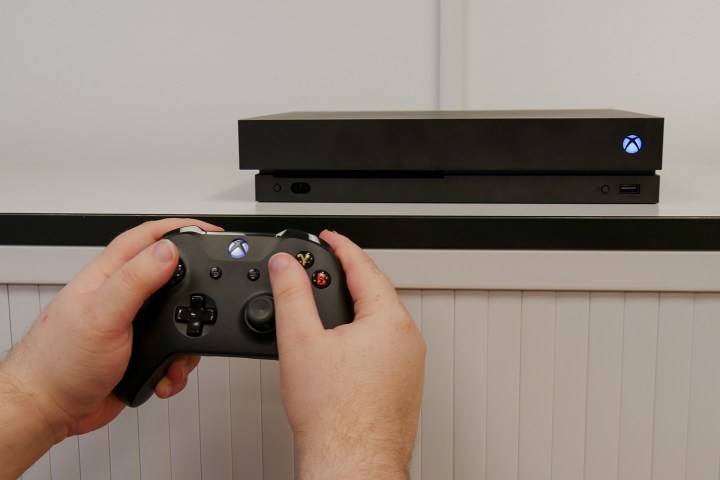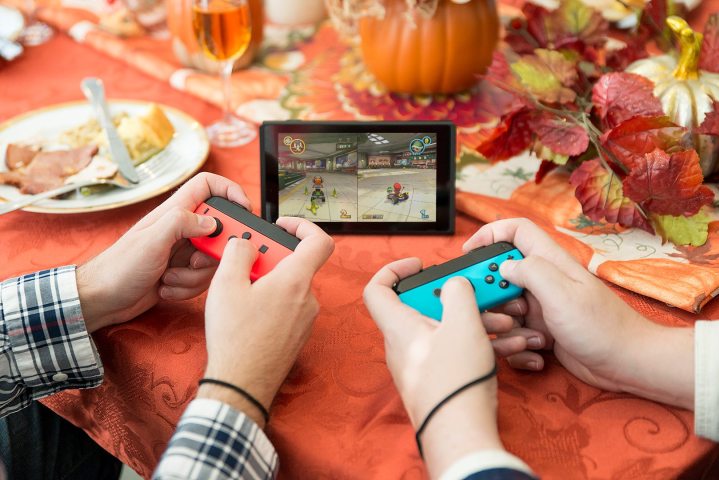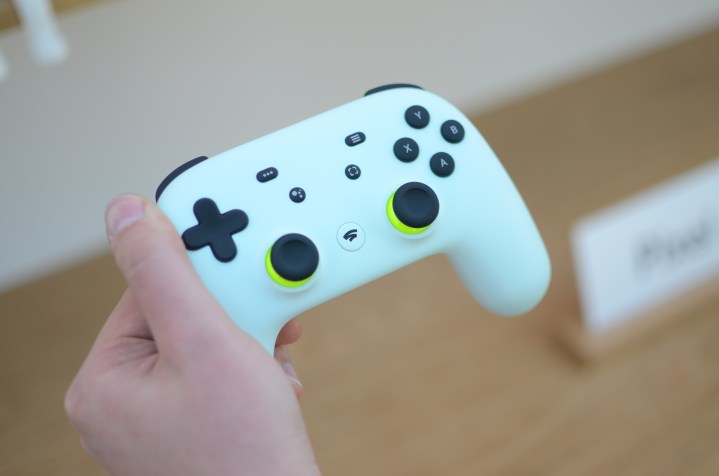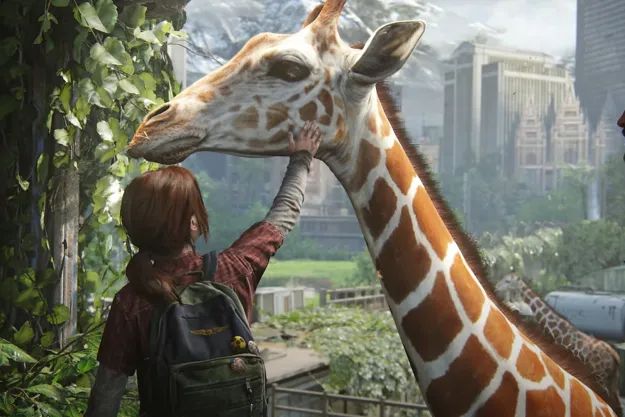Never before have there been so many different options for playing the latest video games, whether it be on a powerful custom-built PC, a traditional gaming console, or via a cloud-based game-streaming service. Instead of one technology serving as a replacement for another, each option has its own unique pros and cons that will appeal to some gamers and not be so appealing to others. In the case of cloud gaming vs. console gaming, many factors should be considered before you decide which direction you’ll go, as it will impact how, when, and where you enjoy your games.
Note: Certain cloud gaming services are also available on consoles. When we refer to “console gaming,” we are talking about games played through either direct download or physical media.
How are they different?

Console gaming has worked relatively the same with each generation, with a few additional ways to purchase or install games being added over time. Regardless of whether you choose a system from Nintendo, Sony, or Microsoft, you can purchase a physical disc or cartridge for these systems or install a game to their internal storage and begin playing. For roughly the last decade, games often come with “day one” updates, as well, which are occasionally mandatory before you can access certain features.
Since the beginning of the Xbox One and PlayStation 4 generation, every game released for traditional consoles can also be purchased digitally and downloaded. Most of these titles are still playable offline, but the rise of persistent online experiences has also led to some “always online” games.
These include multiplayer titles like Destiny 2 and The Division 2, but also certain single-player games such as the upcoming Ghost Recon Breakpoint. Of the three systems, the only one that has almost all functionality when not online is the Nintendo Switch, due to its portable nature.
Cloud gaming works completely differently. Rather than running the games on your own system, which would require physical media or a game installation prior to playing, the games are run on remote servers and streamed to your device. It’s why companies like Microsoft have dubbed their services “Netflix for games,” and it allows for a level of convenience not yet achievable on traditional consoles.
Games played via the cloud are not tied to one platform you’re streaming from. Also like Netflix or Hulu, if you start streaming game on one device and want to switch to a different device, your data will carry over. With content constantly streamed to your device, however, losing your internet connection will result in you being unable to play your games.
Pros of console gaming

Traditional console gaming continues to thrive in 2019, despite the many streaming services currently available and planned to launch shortly. There are several reasons for this, particularly in the United States, and it’s unlikely that will change anytime soon.
Regardless of where you happen to live, one of the major reasons to choose traditional console gaming is game ownership. If you go to the store and purchase a physical disc for a game, it belongs to you. With the exception of titles that require online connections or don’t contain the entirety of their code on physical media, discs and cartridges you buy are yours to play forever.
Most traditional console games’ single-player components can be played offline as well, meaning if your internet happens to go out in the middle of a play session, you’ll still be able to finish what you’re doing and save your progress. In the case of the Nintendo Switch, you can even take those games off your television and play in handheld mode, all without going online.
In the United States, where internet connection speeds can be spotty and data caps are often in place, this can keep you from going over your allotted usage each month.
As we approach the releases of the next generation of PlayStation and Xbox hardware in 2020, traditional console gaming will also have the advantage of performance. Both systems promise up to 8K resolution while retaining high framerates, and though the cloud service
Cons of console gaming

Traditional console gaming won’t have you eating up your internet bandwidth every month, but it still comes with its share of drawbacks. The first is cost. You are going to need to spend at least $200 or $300 to get into traditional gaming, and that is before you actually purchase games to play.
By the time you have a handful of titles on your system, that number could easily double or triple. Microsoft offers a worthwhile alternative to this with Xbox Game Pass, which gives you access to a vault of games for a monthly fee.
Traditional console gaming can also involve quite a bit of waiting, regardless of whether you purchase your games digitally or physically. Games must be installed before they can be played, and if you’re downloading a big title, this can take hours.
On top of this, games get frequent updates and they can sometimes be nearly as large as the original game file. If you run out of space and delete a game and then reinstall it, you have to install these updates again.
Because of the fixed nature of the hardware, traditional console gaming is also limited to the systems you own. Every six or so years, a new set of systems release, requiring you to purchase another console if you wish to keep playing the latest games.
Pros of cloud gaming

Cloud gaming offers a much more convenient experience than traditional console gaming in multiple ways.
First, cloud-based gaming – at least with major players like Google Stadia, Project xCloud, and Shadow – can be played on multiple devices without losing progress. If you are enjoying a
These games support touch inputs as well as traditional controllers, and in the case of Project xCloud, games will even get touch support designed on a per-game basis.
Cloud gaming also eliminates the need to install games and content updates. When you select a game on a cloud service like
Cloud gaming uses hardware in remote servers, meaning that your games’ resolution or performance is not based on the device you’re using. You will get the same basic experience playing a game on your television compared to your phone or tablet, and far beyond what those devices could run locally.
As games continue to evolve, cloud gaming services like Shadow will upgrade their own hardware, continuing to improve performance. You won’t lose access to a game you purchased — unless the service itself is phased out — unlike certain systems such as the PS4, which doesn’t offer backward compatibility with PS3 games.
Cons of cloud gaming

Despite its convenience and ever-evolving nature, there are several reasons why you might not want to choose cloud gaming.
One of the major drawbacks to cloud gaming is the concept of game ownership. Despite Google’s commitment to Stadia as a platform and the ability to purchase individual games through the service, there is no guarantee it will last forever. Because you are streaming the games instead of downloading them, losing access to Stadia means losing access to all of the games you bought.
Depending on the service you select, cloud gaming can also limit the types of games you can play. Nintendo games, for instance, are only available on its own systems, and the vault of titles available via
Stadia is also going to be getting exclusive games in the future, but Google-owned game studios developing these are still in their infancy and are unlikely to have anything major release in the next few years.
You are also at the mercy of your internet service provider when using a cloud gaming service. If you lose your internet, you are left without a way to play the games you purchased. If your internet speed is running particularly slowly one day, you can see a decrease in image quality, as it’s determined based on your download speed.
Most importantly, however, is the effect data caps will have on your ability to use cloud gaming services. With Stadia specifically, those with a 1TB monthly data cap will use up their entire allotted data in 65 hours of 4K gameplay. Data caps are very common in the United States, and though unlimited plans are available for cellular usage, the speeds available aren’t always going to give you the same quality as a home Wi-Fi connection.
Editors' Recommendations
- The best cozy games
- PlayStation Portal 2: 8 features we want in Sony’s next-gen handheld
- All Fallout 4 cheats and console commands
- The best games on Xbox Game Pass for right now (April 2024)
- Xbox Game Pass loses some horror greats, but gains a kid-friendly racing game


